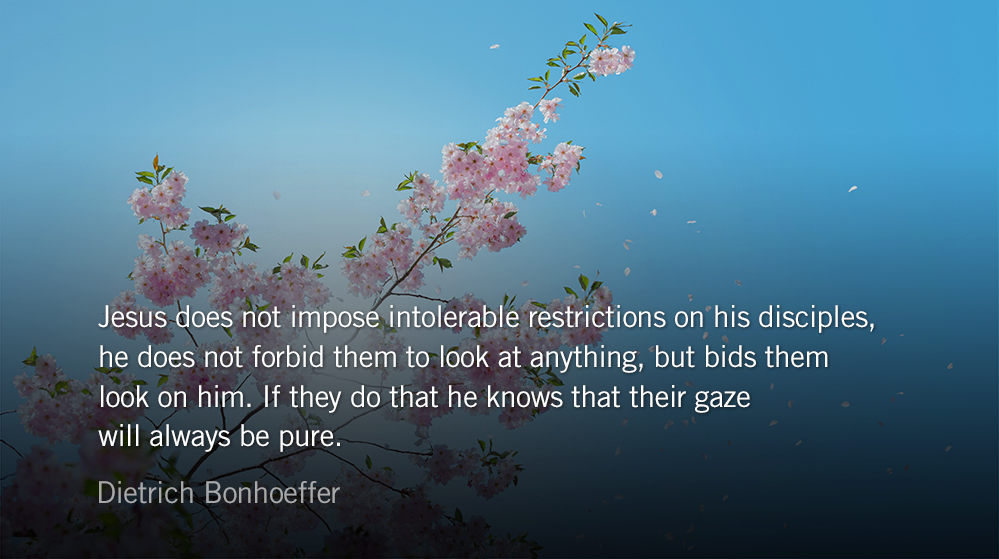“Jesus does not impose intolerable restrictions on his disciples, he does not forbid them to look at anything, but bids them look on him. If they do that he knows that their gaze will always be pure.”
― Dietrich Bonhoeffer
Scripture: Genesis 5.24
Enoch walked with God, and he was not, for God took him.
Reflection: Faithful Steps
The Park Forum
If you’re reading Genesis from the beginning, the first place you come across the Hebrew word for walk is on the day that sin entered the world. “And they heard the sound of the Lord God walking in the garden in the cool of the day.” Guilt and shame were assaulting the hearts of humankind; “and the man and his wife hid themselves from the presence of the Lord God among the trees of the garden.”
Then came the first family’s attempts to find themselves outside of God—the fruit of which was envy and murder. Then generations of life, sin, and death. Then Enoch. The man was great because he walked with God.
Walking with God is such a negligible accomplishment in the eyes of men. Though pages of Scripture are dedicated to the warriors and kings—even the servants—only a handful of verses are given to Enoch. They all echo what we read in Genesis: he walked.
We must imagine his life was as tumultuous as any—filled as much with joy, glory, and success as it was with disappointment, frustration, and personal failure. Yet he walked with God.
Perhaps a modern contemporary of Enoch was Elisabeth Elliot, the missionary and author who walked steadily and faithfully throughout her life. Reflecting on the invitation to walk with God, even through the difficulties of life, Elliot concludes:
The chance for each one of us to “die” is always given. The day’s happenings are presented to us by the God who conceived the intricate shape of the cranesbill’s seed. With exquisite delicacy he prepares us in mysterious ways and teaches us how to receive our daily deaths, whether they be small ones such as the cutting remark, the social slight, the unwelcome task, or the coming to pass of our worst fears.
The disorders and sorrows in my own life, whether attributable solely to my own fault, solely to someone else’s, perhaps to a mixture of both, or to neither, have given me the chance to learn a little more each time of the meaning of the cross.
What can I do with the sins of others? Nothing but what I can do with my own—and what Jesus did with all of them—take them to the cross. Put them down at the foot and let them stay there. The cross has become my home, my rest, my shelter, my refuge.
The Call to Prayer
Search for the Lord and his strength; continually seek his face. — Psalm 105.4
— From The Divine Hours: Prayers for Autumn and Wintertime by Phylis Tickle
Full prayer available online and in print.
Today’s Reading
Genesis 6 (Listen – 2:48)
Matthew 6 (Listen – 4:35)
This Weekend’s Readings
Genesis 7 (Listen – 3:18) Matthew 7 (Listen – 3:31)
Genesis 8 (Listen – 3:06) Matthew 8 (Listen – 4:09)






